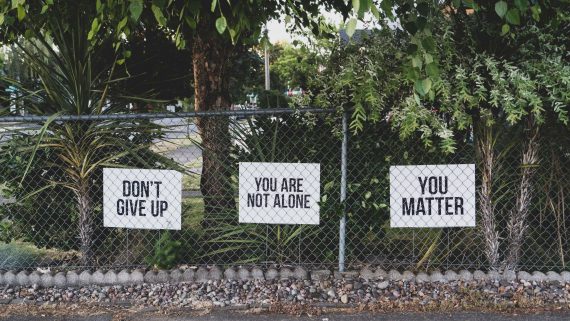Resources
We are here for you and want to make sure that you have all the tools you need on your Path to Wellness. The links provided for you here include trusted mental health partners as well as other local and national agencies that provide mental health, housing, and employment resources you may need on your journey to mental health & wellness. PLEASE NOTE: Emergency Services are NOT AVAILABLE through this website.
24HOUR CARES LINE 786-433-8487
Suicide Lifeline: Dial 988


Mental Health Support
Thriving Mind South Florida
Thriving Mind South Florida is the local safety net organization that funds and oversees a network of approximately 40 substance use and mental health treatment and prevention providers for uninsured and underinsured individuals in Miami-Dade and Monroe Counties. Thriving Mind is funded by the State of Florida, Department of Children and Families, as well as other county, state, federal and private sources. This funding pays for treatment and recovery for individuals with serious mental illness (like major depression, schizophrenia or bipolar disorder) as well as substance use disorders. Thriving Mind and their network healthcare provider organizations provide free services to qualified individuals.
Thriving Mind’s network service providers are listed here.
A map of service provider locations can be found here.
General Support
Thelma Gibson Health Initiative, Inc.
Since 2000, the non-profit Thelma Gibson Health Initiative, Inc (TGHI) has been helping individuals and families struggling with poverty to solve critical problems, improve their health, and to prepare for and find jobs. Program initiatives include social service linkage, legal support, mental health counseling, nutrition education, job training, job placement, housing support and more.
Visit https://tghi-cg.org/ to learn more.
Health Support
The Jessie Trice Community Health System, Inc (JTCHS)
The Jessie Trice Community Health System, Inc (JTCHS) is one of Miami-Dade County’s preeminent federally qualified community health centers, governed by a remarkably dedicated Board of Directors (51% of which are users of the medical and dental services) and a diverse, incredibly talented, committed family of providers and staff. The 1st Federally Qualified Health Center in the state and 5th in the nation, JTCHS is a Florida 501 (c) 3, not-for-profit organization that has been serving Miami-Dade County since 1967 where JTCHS served its first patients from a trailer.
Now, fifty-four (54) years after its founding, JTCHS owns and operates eleven (11) Comprehensive Primary Care centers, a 40-bed Women’s Residential Center for substance use, located in one (1) university and forty (40) school-based health suites. JTCHS knows and specializes in comprehensive health, offering a myriad of services to improve the health of the community. This includes but not limited to: dentistry, family medicine, nutrition, HIV/AIDS, behavioral health, transportation, healthy start, obstetric & gynecological care, school-based health, community health promotions, health & wellness center, pediatrics, and ancillary services. For more information on the Jessie Trice Community Health System, call 305-637-6400, visit us online at jtchs.org or follow us on Facebook, Instagram and/or Twitter: @JessieTriceCHS.
Employment/Workplace Support
OLCDC works to build the community’s social and economic infrastructure by helping families become self-reliant, healthy and successful. Our program serves as the hub for social service support in the Cities of Opa-locka, Miami Gardens, and North Miami, where we work in collaboration of a group of social service agencies comprised of over 40 service providers. We provide care coordination, emergency assistance relief, job placement, family therapy, workshops and more.
Miami-Dade’s County Employee Assistance Program (EAP) is a free and confidential service that focuses on supporting Miami-Dade County employees who are struggling with stress or personal issues that have impacted their daily lives at home or work. EAP counselors focus on setting the foundation for restoration or enhancement of emotional and mental wellness through providing supportive counseling and internal/external referrals. If you, a family member or a team member are struggling with feelings or emotions that interfere with the ability to engage in daily life, reach out to the our team at Miami-Dade County Employee Assistance Program (EAP) at 305-375-3293.
Financial Assistance for Miami-Dade Residents
Energy Assistance Program for Households with one Person Aged 60 or older:
This program provides energy assistance to low-income households, with at least one person aged 60 and older, during a home energy emergency. A home energy emergency may result from a delinquent utility bill or the receipt of a disconnection notice. If your local Community Resource Center does not provide this type of service, please inquire about LIHEAP or the Care to Share Program.
Housing Assistance for Florida Residents
Rental and Other Assistance for the Homeless or Evicted
If you are homeless or have been evicted, you can receive help with your first month’s rent payment, security deposit, mortgage, utility bills, emergency shelter or food.
You can receive one type of assistance per year. The maximum amount you can receive is $1,000 for rent or $1,500 in mortgage assistance.
CUSTOMER ASSISTANCE CENTER LOCATIONS
More than 1,000 homeowners have been assisted at Florida Homeowner Assistance Fund Customer Assistance Centers.
Homeowners may visit one of eight in-person Customer Assistance Centers for assistance. At a customer assistance center, homeowners may:
- Complete a registration for the Florida HAF program.
- Once the homeowner has been invited to apply, receive assistance with completing an application for assistance through the Florida HAF program.
- Receive assistance with uploading documentation necessary to complete an application.
- Receive an update on the status of a submitted application for assistance through the Florida HAF program.
Food Assistance for Miami-Dade Residents
General information about food distribution in Miami-Dade County
You can apply online or download and print the application below for food or cash assistance, family-related medical assistance, relative caregiver, optional state supplementation or medical assistance for persons age 65 and over, blind or disabled, Medicaid waiver/home and community-based services, hospice or nursing home care. Applications available in English, Spanish and Creole.
Medical Assistance (Medicaid)
Medicaid provides medical coverage to low-income individuals and families. The state and federal government share
General Business Assistance
Miami Dade Chamber of Commerce
The mission of Miami-Dade Chamber of Commerce, Inc. is to create opportunities for economic and social transformation in our community. The Chamber envisions a future where the diaspora of Black businesses thrive.
Domestic Violence Assistance
National Domestic Violence Hotline
Everyone deserves a healthy relationship. Call or visit their website to receive help, create a safety plan and more.
Hours: 24/7. Languages: English, Spanish and 200+ through interpretation service Learn more
800-799-7233
Search the directory for local resources in your city.
Important tips for calling 911
There may be a time when calling 911 during a mental health crisis is necessary.
IMPORTANT:
Tell the operator if the emergency involves a person with mental illness so the Crisis Intervention Team (CIT) Police can respond to the situation. They can provide an evaluation of the situation, and if needed, de-escalate and transport individuals experiencing a crisis to the appropriate facilities. Evaluation, treatment, and referrals are provided as necessary by the receiving facilities.
If so, here are a few important tips to remember:
- If you’re not sure whether the situation is a true emergency, officials recommend calling 911 and letting the call-taker determine whether you need emergency help.
- When you call 911, be prepared to answer the call-taker’s questions, which may include:
- The location of the emergency, including the street address
- The phone number you are calling from
- The nature of the emergency
- Details about the emergency, such as a physical description of a person who may have committed a crime or a description of injuries or symptoms being experienced by a person having a medical emergency.
